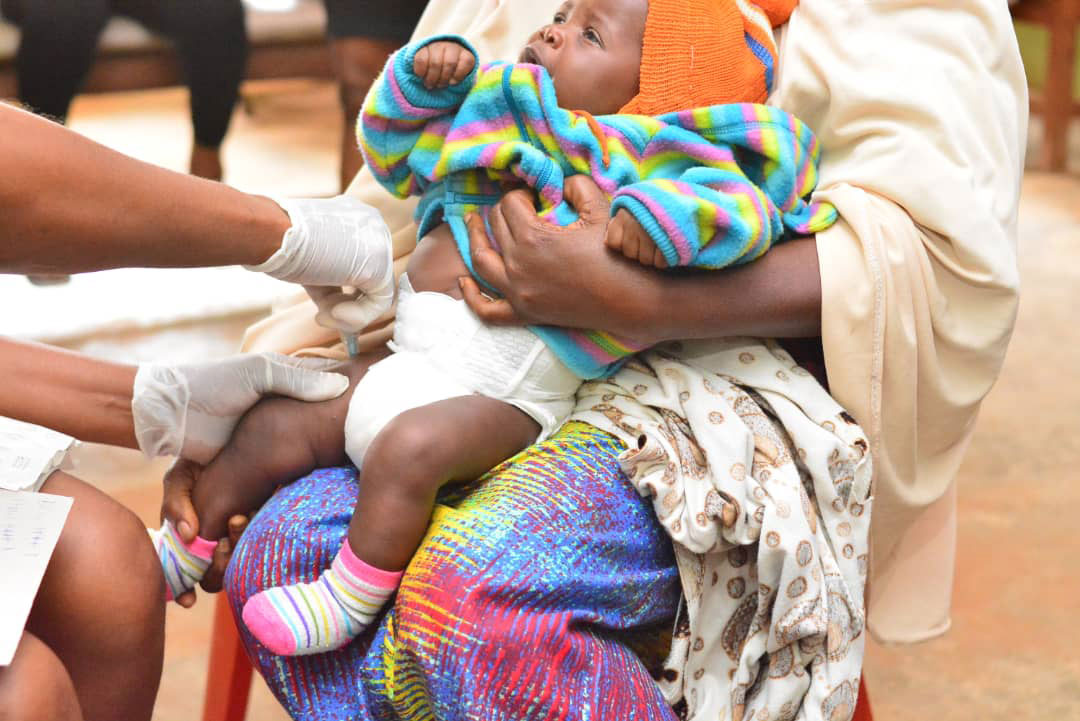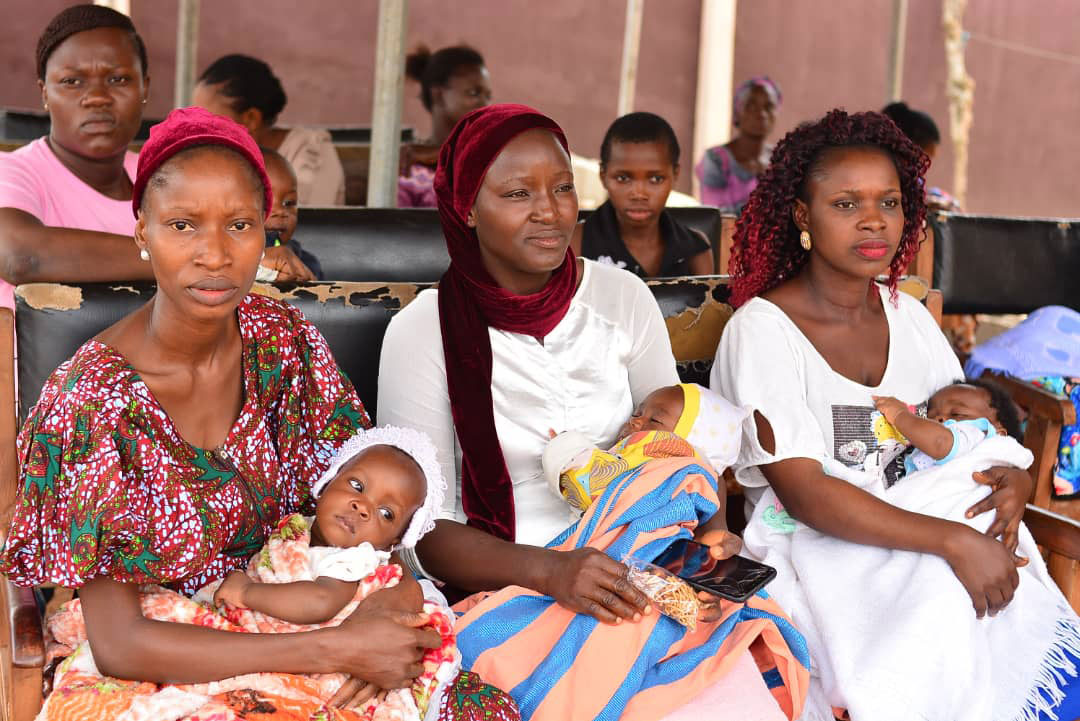COVID-19 vaccines help routine immunisation become routine again in Nigeria
Routine immunisation took a hit in Nigeria thanks to the pandemic. Thanks to the arrival of COVID-19 vaccines, particularly for health workers, mothers are returning to immunisation clinics.
- 30 September 2021
- 3 min read
- by Adetokunbo Abiola

“My fears were justified,” she says. “Nurses weren’t at work, or so I was told, due to the pandemic. So who would then immunise my child?”
"We’re in full operation, with no fear of contracting COVID-19 again. Mothers are bringing their babies for immunisation every day" - Nurse Victoria Afonja
Even after her husband tried to allay her fears, they persisted.
“It’s not a fear that easily goes away,” Yemi says. “I’ve heard stories about what happens to children who are not immunised.”
But things changed with the arrival of COVID-19 vaccines in Ondo State in March this year.
“I felt glad because I knew my child would be immunised,” says Yemi, who gave birth in May. “And that’s why I’ve been bringing her to the hospital for immunisation. It boosts her immune system. It makes her stronger. And it’s a relief for parents because we don’t have to pay for immunisation in Ondo State.”

Like for Yemi, the availability of COVID-19 vaccines came as a relief for Debbie Ologundudu, a mother of one who lives in Isikan in Akure. When the pandemic swept through the community and news reached her that nurses and other workers had fled hospitals or reduced the scale of their operations, the twenty-nine-year-old trader felt the grip of anxiety.
Have you read?
“I almost had heartbreak during the period,” she says. “I know what it meant. Only COVID-19 victims would be treated. And nurses might not even come to work, for fear of contacting COVID-19.”
The arrival of coronavirus vaccines enabled Yemi to have her child immunised with the routine shots he was due: armed with the reassurance of the COVID jab, clinic nurses were carrying out their regular duties.
“My child is okay,” Yemi says. “You can see that I’ve come for the routine immunisation. Since he’s immunised, he’s alright. He hasn’t been sick. He’s been strong.”
She's echoed by thirty-one-year-old fashion designer Maria Adesanya, who likewise had the opportunity to immunise her child. “He hasn’t fallen ill,” she states. “And I’m sure it’s because of the routine immunisation.”
“During the early COVID-19 period, it was hell,” says Victoria Afonja, a nurse in one of the hospitals in Ondo State. “You didn’t know who was who. People were getting COVID-19 anyhow. In some families, everyone got it. There was little or no immunisation. Many of the nurses went away, because they were scared of getting the illness. In addition, many were deployed to take care of COVID-19 victims at the Isikan centre.”
But, thanks to the arrival of COVID-19 vaccines, nurses’ fears about the pandemic vanished.
“Routine immunisation is now going on with full speed,” Victoria says. “We do it on Monday, Thursday, and Friday every week. We’re in full operation, with no fear of contracting COVID-19 again. Mothers are bringing their babies for immunisation every day.”

For Dr Victor Adefesoye, the coordinator of the Ondo State Primary Health Care Programme, the return of routine immunisation gives protection to children’s immune systems.
“Our children’s immune system is strong,” he says. “But it’s only because they’ve followed through on routine immunisations in the recent past.”
More from Adetokunbo Abiola
Recommended for you







